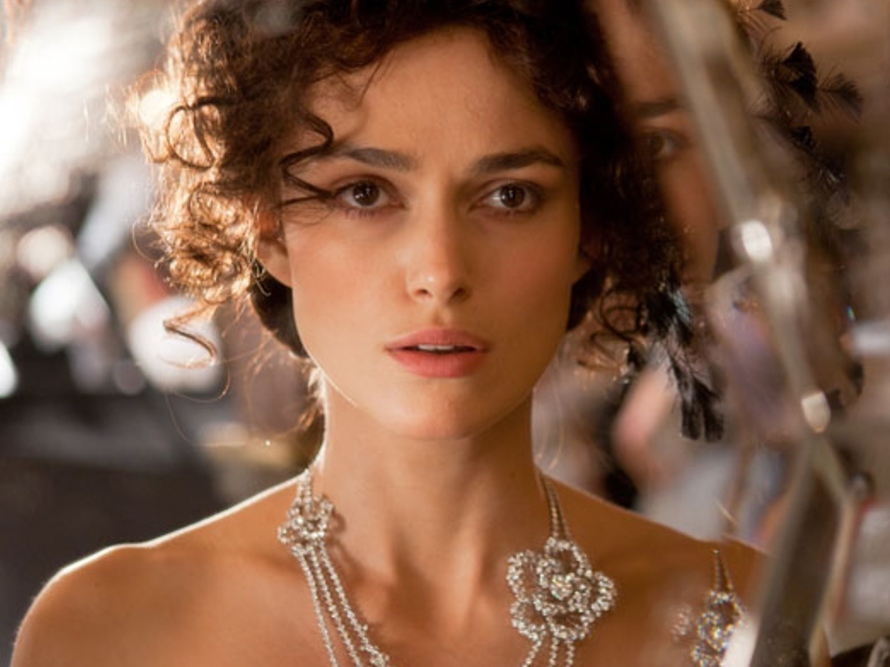The Petraeus scandal is an unfortunate reminder of the devastating damage an affair can cause.
Russian author Leo Tolstoy recognized the danger of straying from a spouse, even going so far as to quote Romans 12:19, “Vengeance is mine, I will repay,” at the beginning of his classic novel “Anna Karenina.”
Screenwriter Tom Stoppard, who adapted the script for the most recent cinematic retelling, recognizes both the centrality of love to the story, and the centrality of justice. It’s the intermingling of these two themes that make Tolstoy’s authentic classic endure.
The story of “Anna Karenina” follows two relationships, one tragic, the other redemptive, in 1870s Russia, at the decline of the imperial empire. When Anna (Kiera Knightley) travels from St. Petersburg to Moscow, to help her philandering brother repair his marriage, she meets Vronsky (Aaron Taylor-Johnson), a dashing young officer who falls for her.
The problem: Anna is married to a key government official, Karenin (Jude Law).
After an emotional evening with Vronksy at a ball, Anna tells him to leave her alone and she returns to St. Petersburg. But he follows her, and soon they begin an affair.
Juxtapose the unraveling of Anna’s familial life with Levin (Domhnall Gleeson), a timid countryman with eyes for the young, innocent debutante, Kitty (Alicia Vikander). He proposes to her, only to be rejected – Kitty is herself infatuated with Vronksy, whose flirtations she has mistaken for reciprocated affection. They are not, which she learns when Vronsky snubs her to dance with Anna at the Moscow ball. Kitty realizes her mistake, but the dejected Levin has already returned home leaving Kitty to mourn her late realization – until fate thrusts them back into each other’s lives.
Director Joe Wright’s (“Pride and Prejudice,” “Hanna,” “Atonement”) interpretation of “Anna Karenina” is unique and imaginative, but with a leading lady and production team he’s worked with before, he had the right crew in place to try something new. It works. Wright’s production stunningly differs from previous adaptations. He essentially films a play, though a play unlike any you’ve seen before. The action occurs in an old theater, grand in style, with deteriorating facades and chipped paint meant to symbolize the decline of the Russian Empire.
Throughout, the lower classes are ever present, mostly as silent servants, but the rumblings of future rebellion are also here, even as the ruling class floats about them oblivious to their concerns.
With Stoppard’s script, the film has a nearly impeccable foundation. Nothing is contrived, least of all the dialogue, which is Stoppard’s strength. The expansive story (clearly and simply retold by Stoppard’s sharp-witted pen) is retold in a completely controlled atmosphere, with perfect lighting, crisp choreography and an emotive score.
The sudden theatrical transitions and legion of sighs expulsed from the leads all add to the effect of watching a drama unfold, a vast performance.
Wright uses every part of the physical theater, from the flies above to the theater booths to illustrate train stations and streets and gilded rooms, even a racetrack and an ice rink. At first the scenes are so masterfully presented that the locations and effects nearly steal the show – a long continuous camera shot is less about moving the story forward than about the skills of the highly choreographed cast and crew to transform a workshop into a street and then a restaurant in a single whirling dance of moving set pieces and stylized societal interactions.
But as the film progresses, the team settles in, the viewer’s imagination takes over and the story comes alive. The setting keeps the inherent melancholy from overwhelming, instead reminding us that this is a morality tale and it has a lesson for all of us.
Of course, the performances are key. Knightley is at her best as Anna: passionately in love, a mother concerned for her son, aware of her societal suicide yet powerless and ambivalent to change course. It’s an incredible performance, well balanced by the reckless and rash Vronsky (Taylor-Johnson) and her controlled, moral husband Karenin brilliantly played by Law. The three are particularly good during a spectacularly filmed horse race, as raw emotions overcome each.
Kitty and Levin (and the pure performances of Vikander and Gleeson) capture love in all its goodness, and redeem the tragic story. Vikander is an angel, variously pictured seated amidst a backdrop of heavenly clouds and later, like Florence Nightingale, angelically lit as she attends Levin’s sick brother. Their quiet reunion months after the first failed proposal captures the joy and peace of love – not scandalous lust played out garishly on front pages and dissected at parties, but the true sort that lasts forever.

COMMENTS
Please let us know if you're having issues with commenting.